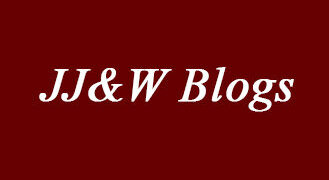Reprinted with permission from Currents magazine (May/June 2024), published by the Council for Advancement and Support of Education. Phillips Academy is an independent co-educational boarding school. As its CCO, Tracy Sweet takes to heart her role in providing communications that enrich, inform, and protect the school community. When pressures to respond to an increasing number of political and societal events began taking her away from that mission, she, and the school’s leadership team, took action by developing guidelines for responding to world events.
What prompted the need for guidelines that establish when to address societal issues?
In the span of two years, we issued eight statements on societal events, such as the war in Ukraine, the January 6 insurrection at the U.S. Capitol, and the school shooting in Uvalde, Texas. The process was reactive and, further, it felt presumptuous to think that a school statement would have some profound effect. We questioned whether putting out such statements aligned with our mission. We took a moment to pause and really think about that.
The guidelines start by asking what the campus community needs from Andover. This includes things like informational resources and support, a place for fellowship, or an educational forum.
Once our campus community is taken care of, we address the need for a public statement by asking: Is the matter relevant to education? Does it directly impact our mission? Does Andover have expertise to advance a deeper understanding of the issue?
If we answer “yes” to any of those questions, the guidelines lead us through a discussion that helps us consider the potential effects of issuing a statement such as, “Would some students, faculty, or staff feel ignored or silenced, their opinions unwelcome?”
How do the guidelines for societal issues differ from those that guide communication surrounding a crisis directly affecting your campus community?
The guidelines are an addendum to our crisis communication plan. The fundamental question no matter the issue is: “How are we responding to the needs of our campus community?” That’s the start for both; then the processes are entirely different. We recently revamped our crisis communications plan in the form of scenarios. We’ve designed 10 different possible scenarios, which we’ll keep adding to; they include a cyber-attack, a student tragedy, an environmental disaster, an active shooter—all the things that keep us up at night.
You revisited the new guidelines last fall. Why?
When war broke out in the Middle East, Andover’s response did not include a statement. It did include immediate support and resources as the crisis escalated. Our Head of School addressed a campus-wide assembly, and education programming came a few weeks later when a guest scholar explored the history of the conflict and the current political and religious climate. Our challenge, from a communications stance, was that students recalled previous global events when Andover did speak out and wanted to know why we did not issue a statement this time.
We quickly realized we had not done a good enough job to broadly share that our approach to statements had evolved. To increase awareness, we emailed our “Andover Principles” campus-wide and posted them online.
For instance, one of the principles states:
Andover’s mission is to educate high school students. We teach students how to think, not what to think. And we teach them to analyze societal issues through a wide range of perspectives. We are not policymakers or experts in global affairs. Therefore, it is rare that Andover will issue a statement on societal events that do not directly impact the school’s mission.
Why are these guidelines so important?
Having guiding principles helps to create clarity when emotions are running high. Without a framework, you risk making an unanchored ethical decision by weighing the importance of one tragedy against another. In some cases, you are placing value on one group’s needs over another. That’s not sustainable, and it’s certainly not a best practice.
If you develop a pattern of issuing performative statements, you could erode your institution’s reputation. As a strategic communications professional, I see that as an affront to the profession. We are not vending machines for generic quotes. We must offer substance. It is not the statement, but the action that signals care and empathy and compassion.

